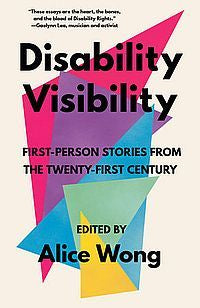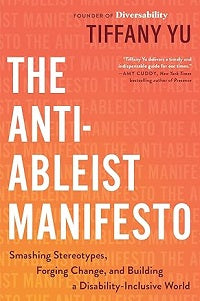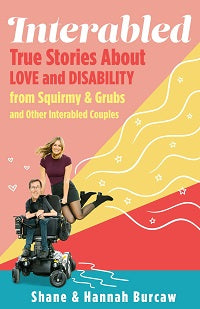In The Future Is Disabled, Leah Laksmi Piepzna-Samarasinha asks some provocative questions: What if, in the near future, the majority of people will be disabled - and what if that's not a bad thing? And what if disability justice and disabled wisdom are crucial to creating a future in which it's possible to survive fascism, climate change, and pandemics and to bring about liberation?
Building on the work of their game-changing book Care Work: Dreaming Disability Justice, Piepzna-Samarasinha writes about disability justice at the end of the world, documenting the many ways disabled people kept and are keeping each other - and the rest of the world - alive during Trump, fascism, and the COVID-19 pandemic. Other subjects include crip interdependence, care and mutual aid in real life, disabled community building, and disabled art practice as survival and joy.
Written over the course of two years of disabled isolation during the pandemic, this is a book of love letters to other disabled QTBIPOC (and those concerned about disability justice, the care crisis, and surviving the apocalypse); honor songs for kin who are gone; recipes for survival; questions and real talk about care, organizing, disabled families, and kin networks and communities; and wild brown disabled femme joy in the face of death. With passion and power, The Future Is Disabled remembers our dead and insists on our future.
Table of Contents
Thanks and Acknowledgments
Part I: Disability Justice in The End Times
Chapter 1: “We Were Maybe Not Going to Save the World, but We Were Going to Save Each Other”: How Disabled Mutual Aid Is Different than Abled Mutual Aid
Tiny Disabled Moment #1: Small Moments of Disabled Knowing
Chapter 2: Interdependence Is Not Some Giant Living in the Hillside Coming Down to Visit the Townspeople: The Church of Show the Fuck Up, in Real Life
Tiny Disabled Moment #2: “There Is No Disabled Community Here”
Interlude: Pod Mapping for Mutual Aid, by Rebel Sidney Fayola Black Burnett
Chapter 3: Disabled Grief Technologies: Disability Justice Future-Building in a Time of Mass Grief
Recipe: Rosewater for Crying Eyes
Chapter 4: Nobody Left Behind and Wanting to Run Like Hell: Disabled Survival in Climate Crisis
Chapter 5: Cripping the Resistance: No Revolution without Us
Recipe: Stacey Soup
Chapter 6: Still Dreaming Wild Disability Justice Dreams at the End of the World
Tiny Disabled Moment #3: The Free Library of Beautiful Adaptive Things
Chapter 7: The Future Is Disabled (with Karine Myrgianie Jean-Francois, Nelly Bassily, Sage Lovell, Sarah Jama, and Syrus Marus Ware)
Part II: The Stories That Keep Us Alive: Disability Justice Arts In The Interregnum
Chapter 8: Twenty Questions for Disability Justice Art Dreaming: A Winter Solstice Present
Chapter 9: I Wanna Be with You Everywhere (And I Am): Disability Justice Art as Freedom Portal
Chapter 10: Disability Justice Writing, the Beauty and the Difficulty
Chapter 11: Autistic Long-Form, Short-Form, No-Form, Echotextia: Autistic Poetic Forms
Chapter 12: Cripping the Book Tour
Sample Access Rider
Part III: The Disabled Future
Tiny Disabled Moment #4: ADA 30 / DJ 15
Chapter 13: Disabled Secrets
Chapter 14: What Really Happens in DJ Groups
Chapter 15: Home Is a Holy Place: The Sacred Organizing Spaces of Disabled Homes
Tiny Disabled Moment #5: LL Comes to Me
Chapter 16: Loving Stacey: An Honor Song
Tiny Disabled Moment #6: Adaptive Trike
Chapter 17: Wild Disabled Joy: Disabled Pleasure Activism
Chapter 18: Wild Disabled Futures: The Future Is Now
Piepzna-Samarasinha is one of the strongest contemporary voices in the fields of disability and transformative justice ... Unflinching and confrontational, The Future is Disabled doesn't pull any punches. It is both an instructional guide and a critical, eyeopening manifesto that will help nondisabled readers engage with the subject matter. - Booklist
The Future is Disabled is full of passion, compassion and fire. Its 18 chapters blur the lines between memoir, political essay, rant and eulogy, all of them united by the conviction that every body, mind, race and gender matter. - Ms. Magazine
You might also be interested in:


















